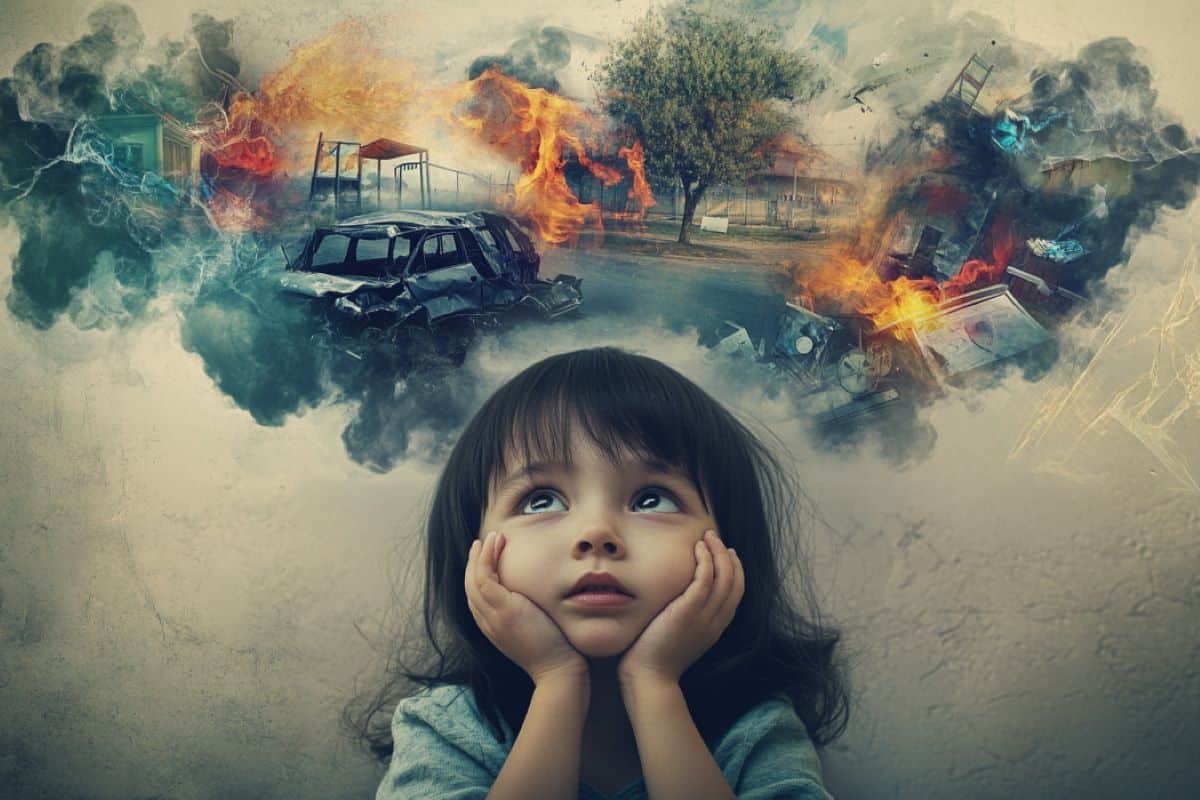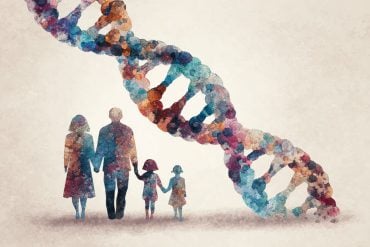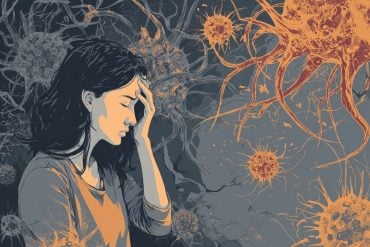Summary: A new study reveals that how children mentally process traumatic events is the most significant factor in predicting their mental health outcomes, including PTSD, anxiety, and depression. Cognitive factors—like how children remember the event and view themselves afterward—play a more critical role than the event’s objective severity.
Researchers found that children with more negative self-perceptions or distorted memories were at higher risk for long-term psychological impacts. Interestingly, the study showed that addressing these cognitive factors through trauma-focused cognitive behavioral therapy may improve recovery. This insight offers a path to better therapeutic approaches for children who have experienced trauma.
Key Facts:
- Children’s self-perceptions and memory distortions post-trauma were key predictors of mental health issues.
- Event severity was less predictive of outcomes than children’s subjective experience.
- Trauma-focused cognitive behavioral therapy may address these cognitive impacts effectively.
Source: University of East Anglia
A new study has shed light on why some children and adolescents develop mental health disorders like PTSD, anxiety, or depression after experiencing a traumatic event.
While most children recover well after a traumatic event, some go on to develop mental health disorders that may stay with them for months, years, or even into adulthood.
The University of East Anglia research found that cognitive psychological factors—such as how children remember the event and how they perceive themselves afterward—are the strongest predictors of poor mental health outcomes following a trauma.

Co-author Katie Lofthouse, of UEA’s Norwich Medical School, said: “Some children and adolescents who have experienced traumatic events like road traffic collisions or violence may develop post-traumatic stress disorder (PTSD), as well as other conditions such as anxiety and depression.
“However, we do not understand why children might develop one set of difficulties and not another.
“We found that cognitive psychological factors – like features of their memories for the trauma and how they see themselves after the trauma – were the most powerful predictors of all forms of poor mental health.
“Aspects of how severe the trauma was, or a child’s age or sex were much less important.”
The research team worked with 260 children aged between eight and 17 who had attended a hospital emergency department following a one-off traumatic incident. These included events such as car crashes, assaults, dog attacks and other medical emergencies.
These young people were assessed at two and nine weeks post-trauma using self-report questionnaires completed by the child, telephone interviews with parents, and hospital data, which was then used to develop four predictive models of risk factors for PTSD, Complex PTSD (CPTSD), depression, and Generalised Anxiety Disorder (GAD).
At nine weeks post-trauma, 64pc showed no signs of any disorder, 23.5pc met the criteria for PTSD, and 5.2pc for CPTSD. A total of 23.9pc and 10.7pc had developed clinically significant symptoms of depression and GAD, respectively.
When it came to predicting who would develop these mental health issues, a model based on how people think (a cognitive model) was the most accurate.
A model that looked at social and psychological factors was weaker in predicting later mental health symptoms.
Interestingly, a child’s personal perceptions of how severe the event was had a stronger impact on their mental health than objective, measurable facts about the severity of the event.
Miss Lofthouse added: “These findings highlight risk factors for the development of mental health disorders following trauma exposure in youth.
“Negative thoughts about the traumatic event were a major predictor of all types of mental health problems studied.
“This supports the use of treatments like trauma-focused cognitive behavioural therapy, which aims to address these negative thoughts.
“Our research also showed that poor memory of the trauma specifically predicted PTSD, suggesting that certain symptoms may help predict different mental health outcomes.”
Previous research from UEA found that children are more likely to suffer Post Traumatic Stress Disorder (PTSD) if they think their reaction to traumatic events is not ‘normal’.
This latest research goes into further depth, looking at not just PTSD, but also other mental health outcomes such as complex PTSD, depression, and anxiety.
Complex PTSD includes all the symptoms of PTSD but also has some additional, more severe emotional and psychological impacts. This can include problems managing extreme emotions, feelings of deep shame, guilt, or worthlessness and difficulty trusting others, feeling detached or isolated, or experiencing ongoing conflicts in relationships.
There have been few studies that compare how well different models can predict mental health outcomes in people who have experienced trauma, and none of these studies have focused on young people.
With the recent introduction of Complex PTSD (CPTSD) as a diagnosis, the research team wanted to see if it was possible to predict mental health issues in youth who have been through trauma.
The research team also considered factors including other life stressors and whether the child was experiencing on-going pain.
The researchers say the results back up the idea that how a person thinks about their trauma plays a big role in PTSD, but they also show that this model is not disorder-specific and applies to Complex PTSD, depression, and anxiety.
Further research could look more closely at thoughts tied to specific disorders or focus on general distress after trauma.
Funding: The work was supported by the Medical Research Council and led by the University of East Anglia in collaboration with the University of Cambridge, Addenbrooke’s Hospital, Macquarie University, Sussex Partnership NHS Foundation Trust and King’s College London.
About this child trauma and mental health research news
Author: Kimberley Powles
Source: University of East Anglia
Contact: Kimberley Powles – University of East Anglia
Image: The image is credited to Neuroscience News
Original Research: Open access.
“Predictive models of post-traumatic stress disorder, complex post-traumatic stress disorder, depression, and anxiety in children and adolescents following a single-event Trauma” by Katie Lofthouse et al. Psychological Medicine
Abstract
Predictive models of post-traumatic stress disorder, complex post-traumatic stress disorder, depression, and anxiety in children and adolescents following a single-event Trauma
Background
This study examined the power of theory-derived models to account for the development of PTSD, Complex PTSD (CPTSD), depression, and anxiety in children and adolescents who had experienced a single-event trauma.
Methods
Children (n = 234, aged 8–17 years) recruited from local Emergency Departments were assessed at two and nine weeks post-trauma. Data obtained from self-report questionnaires completed by the child, telephone interviews with parents, and hospital data were used to develop four predictive models of risk factors for PTSD, CPTSD, depression, and Generalized Anxiety Disorder (GAD). ICD-11 proposed diagnostic criteria were used to generate measures for CPTSD and PTSD to assess for risk factors and identify the sample prevalence of these disorders.
Results
At nine weeks post-trauma, 64% did not meet criteria for any disorder, 23.5% met criteria for PTSD, and 5.2% met criteria for CPTSD. 23.9% and 10.7% had developed clinically significant symptoms of depression and GAD, respectively. A cognitive model was the most powerful predictive model, a psychosocial model was weak, and subjective markers of event severity were more powerful than objective measures.
Conclusions
Youth exposed to single-incident trauma may develop different forms of psychopathology, and PTSD and CPTSD are frequently experienced alongside other conditions. The cognitive model of PTSD shows utility in identifying predictors of PTSD, CPTSD, depression, and GAD, particularly the role of trauma-related negative appraisals. This supports the application of cognitive interventions which focus upon re-appraising trauma-related beliefs in youth.






